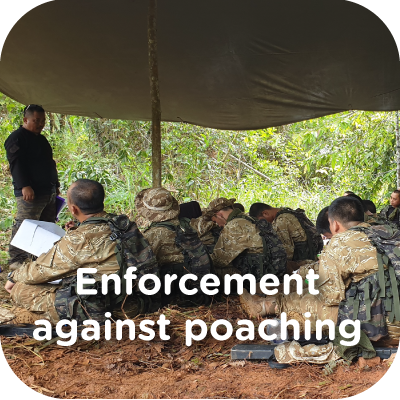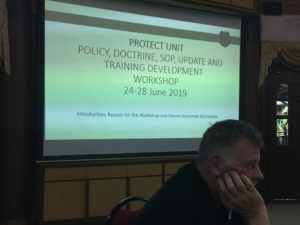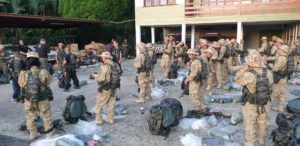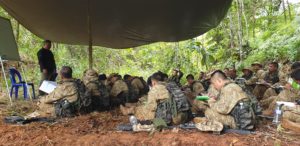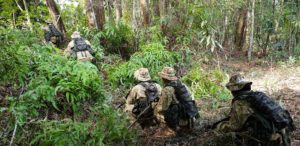Duration: 2019 – 2021
Poaching and wildlife trafficking have dramatically increased during the past few years in Malaysia and in Sabah. Just in 2018 more than 10 elephants and four bantengs were poached in Sabah’s protected areas. Increased seizures of pangolin scales and elephant ivory were also recorded. Anti-poaching capacity is necessary in Sabah to patrol rural, forest areas to deter offences through a physical presence, and to detect offences such as trespass, going-equipped offences (possession of weapons or prohibited items such as snares), ideally before the commission of crimes.
Anti-poaching rangers form the first and last line of defence for nature. Without the right training, equipment, management and support they cannot protect Sabah’s natural heritage for future generations. The Sabah Forestry Department is adamant to fulfil this responsibility within its areas of operations, whilst working alongside credible partners who specialise in the vital components of conserving biodiversity in protected and unprotected areas.
This project was first mooted to meet the challenges posed by poaching and wildlife trafficking crimes, and to strengthen governance and the enforcement of forest laws which fall under the purview of Sabah Forestry Department. In particular it aims to increase the capacity and effectiveness of Sabah Forestry Department’s PROTECT Team in combatting wildlife poaching and eradicating wildlife trafficking in Sabah. The focus will be on increasing of more effective ranger patrols, on equipping rangers with the skills and technology they need to be effective, and on helping coordinate on-the-ground communications, intelligence gathering and pro-active investigative responses.
With comprehensive training, equipment, management and support, PROTECT can work towards safeguarding Sabah’s natural heritage for future generations. Additionally, to complement and support the operations on the ground, a sustainable, strategic investigative capacity will be developed to direct resources towards a higher level of offender, including those purchasing and ordering wildlife from poachers, and those who sell and traffic wildlife to wholesalers and end consumers including international trafficking. This aspect of the project is coupled with our Intelligence and Forensics project [link to INL Project]
Collaborator
Sponsor

